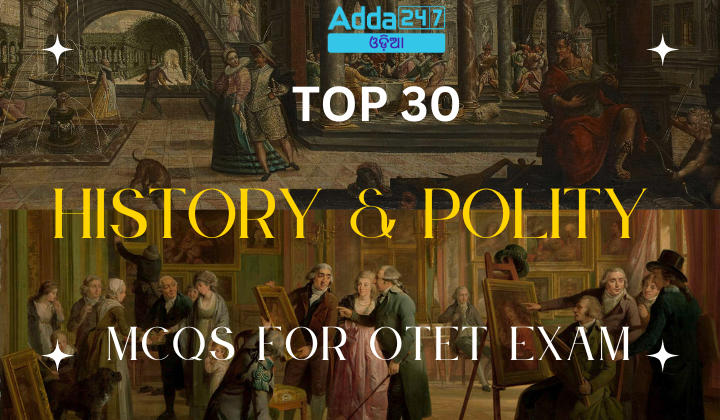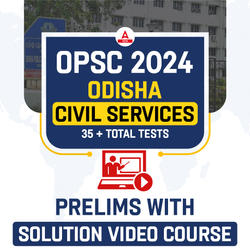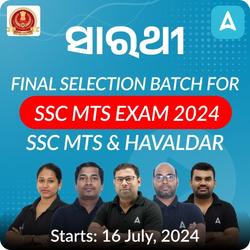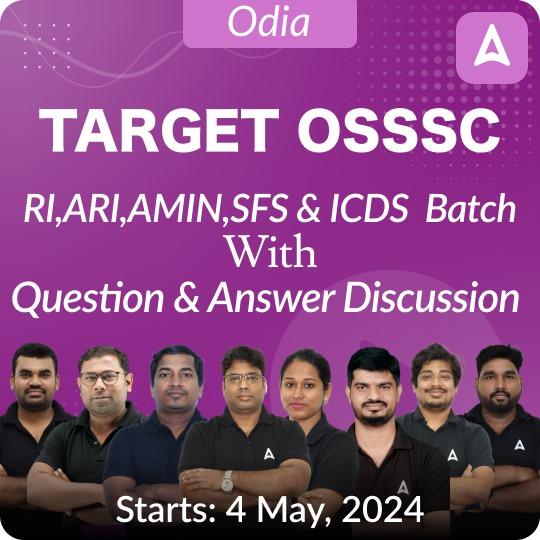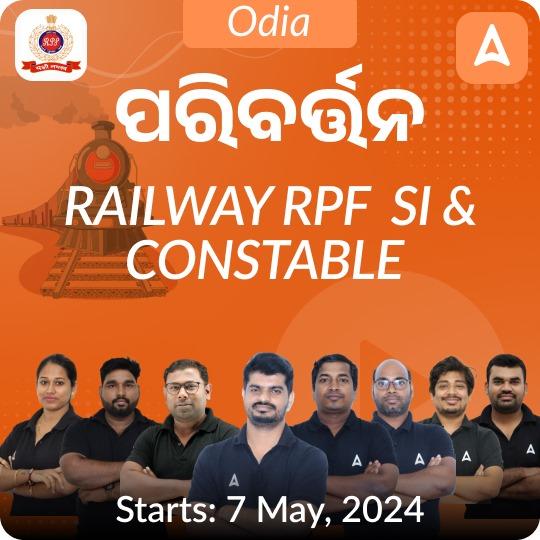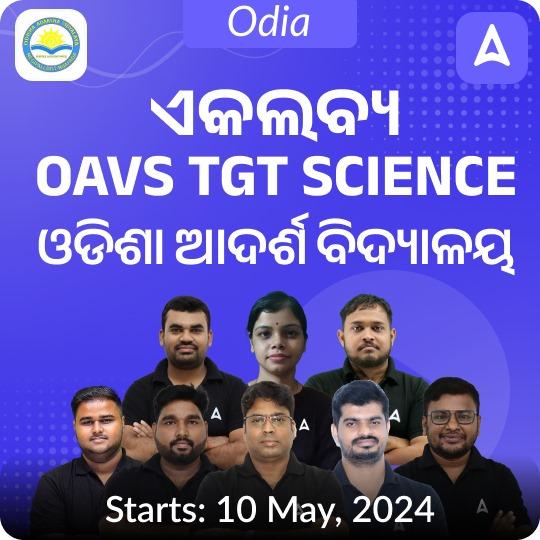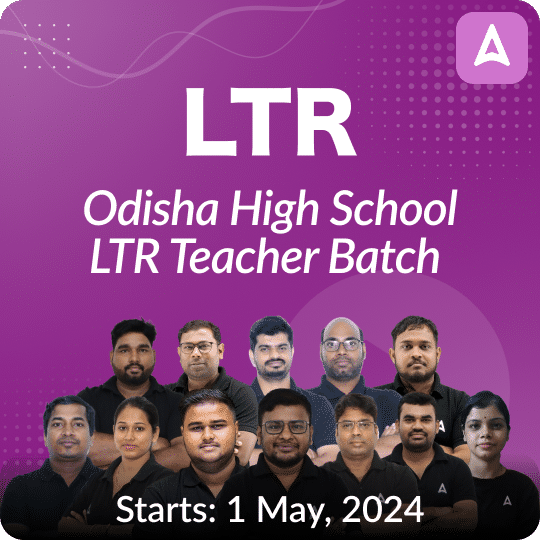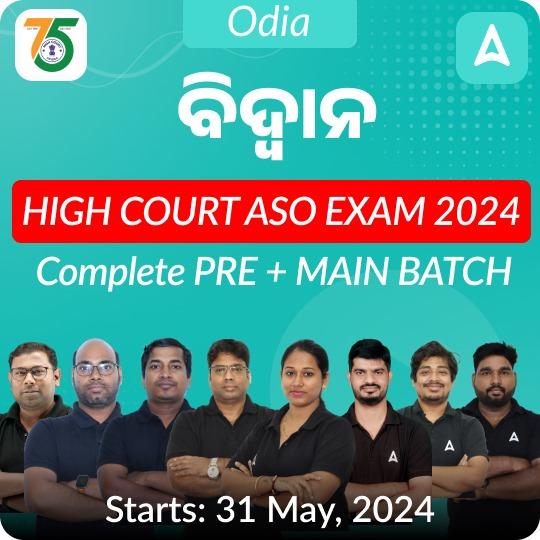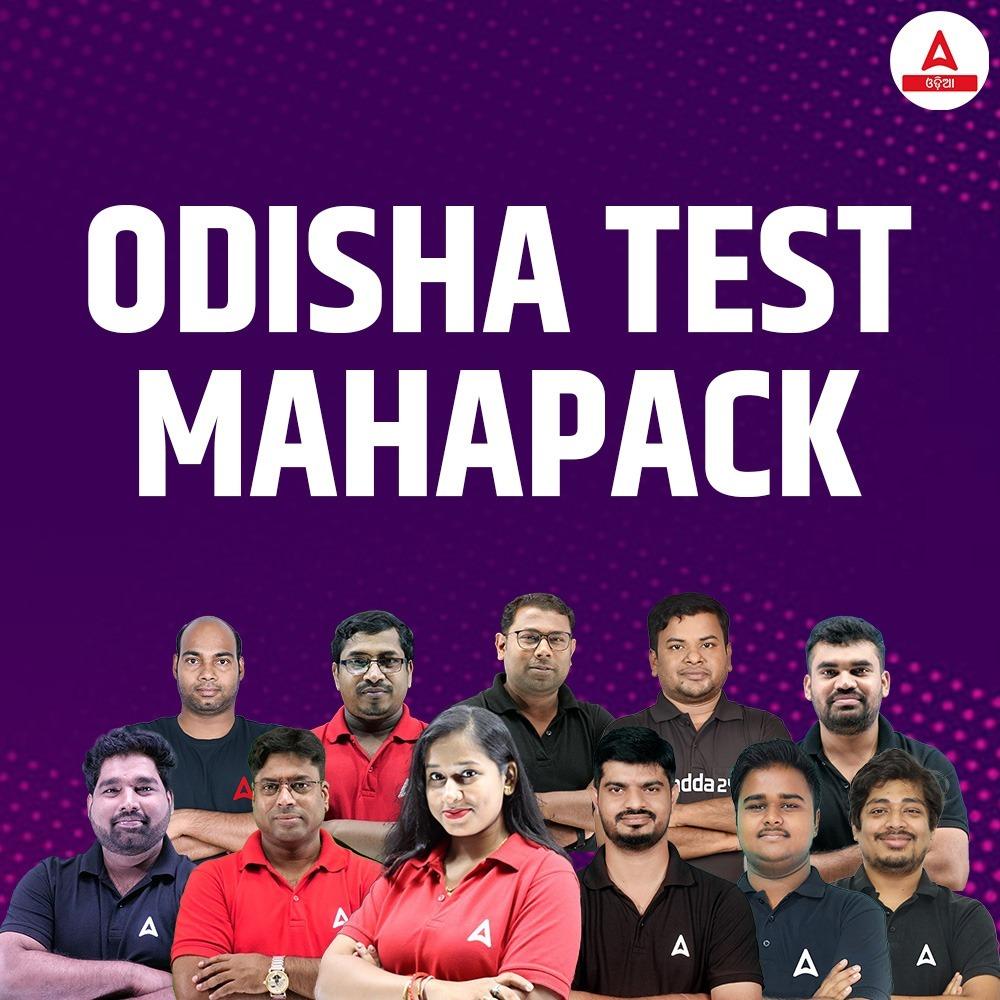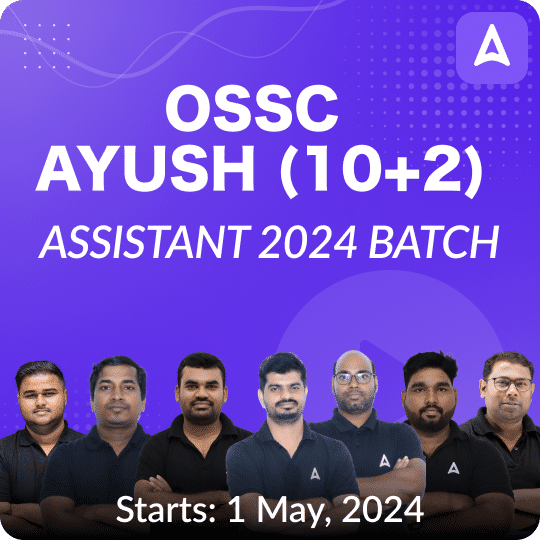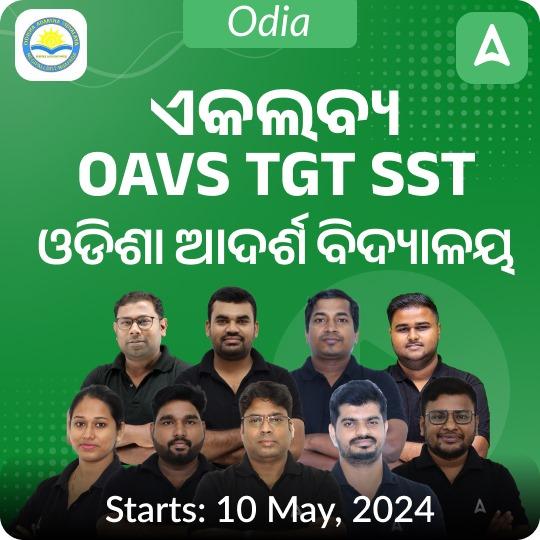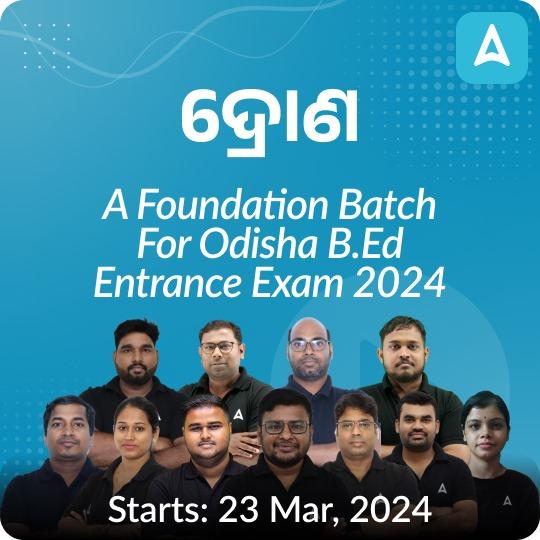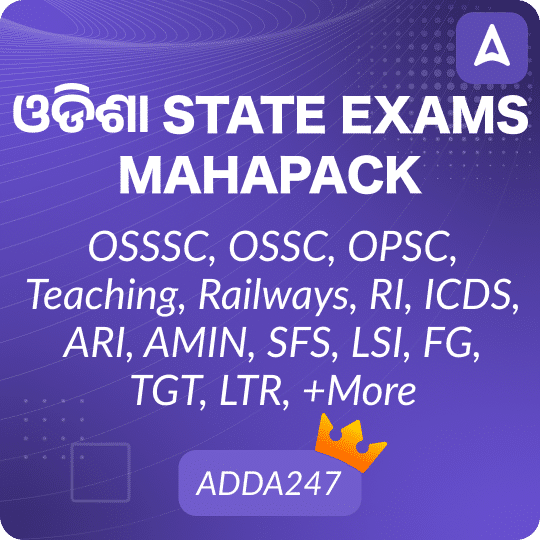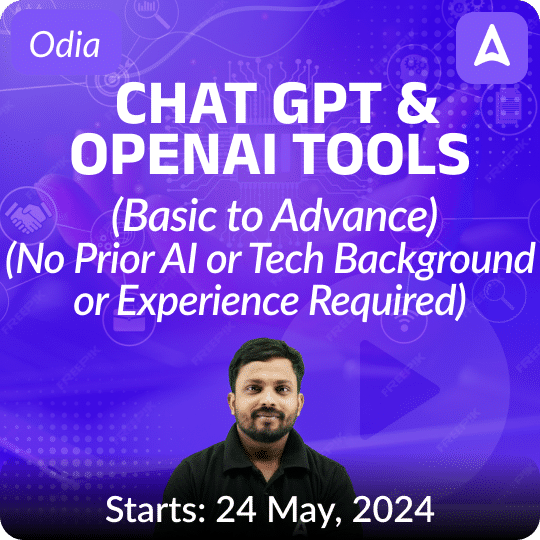Prepare for the OTET Paper-II Exam with these high-level difficult MCQs focusing on History and Polity. This set covers critical topics like the Indian Constitution, freedom struggle, governance, and key historical events, helping you enhance your knowledge and ace the exam.
Top 30 History & Polity MCQS For OTET Paper-II Exam
- Who among the following was the chairman of the Drafting Committee of the Indian Constitution?
(a) Dr. Rajendra Prasad
(b) Dr. B.R. Ambedkar
(c) Jawaharlal Nehru
(d) Sardar Patel
Ans: (b) Dr. B.R. Ambedkar - The Preamble of the Indian Constitution declares India to be a:
(a) Sovereign, Socialist, Secular, Democratic Republic
(b) Sovereign, Socialist, Secular, Democratic State
(c) Sovereign, Democratic Republic
(d) Sovereign, Secular, Democratic Republic
Ans: (a) Sovereign, Socialist, Secular, Democratic Republic - Who was the first Indian Governor-General of independent India?
(a) Lord Mountbatten
(b) C. Rajagopalachari
(c) Rajendra Prasad
(d) Jawaharlal Nehru
Ans: (b) C. Rajagopalachari - The Regulating Act was passed in:
(a) 1757
(b) 1765
(c) 1773
(d) 1784
Ans: (c) 1773 - Who introduced the ‘Doctrine of Lapse’?
(a) Lord Dalhousie
(b) Lord Wellesley
(c) Lord Hastings
(d) Lord Cornwallis
Ans: (a) Lord Dalhousie - The Quit India Movement was launched in:
(a) 1940
(b) 1941
(c) 1942
(d) 1943
Ans: (c) 1942 - The term ‘cabinet government’ was coined by:
(a) Ivor Jennings
(b) Walter Bagehot
(c) A.V. Dicey
(d) Henry Maine
Ans: (b) Walter Bagehot - The President of India is elected by:
(a) Direct vote of all citizens
(b) Members of both houses of Parliament
(c) An electoral college consisting of elected members of both houses of Parliament and the Legislative Assemblies of States
(d) Elected members of Lok Sabha
Ans: (c) An electoral college consisting of elected members of both houses of Parliament and the Legislative Assemblies of States - The Indian National Congress was founded in:
(a) 1885
(b) 1890
(c) 1905
(d) 1910
Ans: (a) 1885 - The first battle of Panipat was fought in:
(a) 1526
(b) 1556
(c) 1576
(d) 1658
Ans: (a) 1526 - Which of the following acts introduced the system of Dyarchy in the provinces?
(a) Government of India Act, 1919
(b) Government of India Act, 1935
(c) Indian Councils Act, 1909
(d) Indian Independence Act, 1947
Ans: (a) Government of India Act, 1919 - The largest committee of the Parliament of India is:
(a) Public Accounts Committee
(b) Estimates Committee
(c) Committee on Public Undertakings
(d) Business Advisory Committee
Ans: (b) Estimates Committee - The title ‘Mahatma’ was first given to Gandhiji by:
(a) Rabindranath Tagore
(b) Subhas Chandra Bose
(c) Bal Gangadhar Tilak
(d) Jawaharlal Nehru
Ans: (a) Rabindranath Tagore - The right to vote in elections to the Lok Sabha and State Legislative Assemblies is based on:
(a) Property ownership
(b) Education
(c) Age
(d) Residency
Ans: (c) Age - Who was the first President of India?
(a) Dr. S. Radhakrishnan
(b) Dr. Rajendra Prasad
(c) Dr. Zakir Hussain
(d) V.V. Giri
Ans: (b) Dr. Rajendra Prasad - The Montagu-Chelmsford Reforms were embodied in the:
(a) Indian Councils Act, 1909
(b) Government of India Act, 1919
(c) Government of India Act, 1935
(d) Indian Independence Act, 1947
Ans: (b) Government of India Act, 1919 - The Directive Principles of State Policy are borrowed from the Constitution of:
(a) USA
(b) Ireland
(c) Canada
(d) Australia
Ans: (b) Ireland - The first Indian to be elected to the British House of Commons was:
(a) Dadabhai Naoroji
(b) Gopal Krishna Gokhale
(c) Mahatma Gandhi
(d) Subhas Chandra Bose
Ans: (a) Dadabhai Naoroji - The constitution of India was adopted by the Constituent Assembly on: (a) 26th January 1949
(b) 26th January 1950
(c) 26th November 1949
(d) 26th November 1950
Ans: (c) 26th November 1949 - The first session of the Indian National Congress was held at:
(a) Bombay
(b) Calcutta
(c) Madras
(d) Delhi
Ans: (a) Bombay - Which Viceroy is associated with the partition of Bengal in 1905?
(a) Lord Curzon
(b) Lord Hardinge
(c) Lord Ripon
(d) Lord Minto
Ans: (a) Lord Curzon - The Indian National Army (INA) was founded by:
(a) Mahatma Gandhi
(b) Subhas Chandra Bose
(c) Jawaharlal Nehru
(d) Sardar Patel
Ans: (b) Subhas Chandra Bose - The Constitution of India describes India as:
(a) A Federation
(b) A Union of States
(c) A Confederation
(d) A Quasi-Federal State
Ans: (b) A Union of States - Which Amendment Act gave Constitutional status to Panchayati Raj institutions?
(a) 72nd Amendment Act
(b) 73rd Amendment Act
(c) 74th Amendment Act
(d) 75th Amendment Act
Ans: (b) 73rd Amendment Act - The ‘Cabinet Mission’ of 1946 was led by:
(a) Lord Wavell
(b) Clement Attlee
(c) Lord Mountbatten
(d) Pethick-Lawrence
Ans: (d) Pethick-Lawrence - The Supreme Court of India was set up by:
(a) The Constitution
(b) The Act of 1909
(c) The Act of 1919
(d) The Act of 1935
Ans: (a) The Constitution - The Battle of Plassey was fought in:
(a) 1747
(b) 1757
(c) 1767
(d) 1777
Ans: (b) 1757 - Which of the following movements was launched by Mahatma Gandhi during the Second World War?
(a) Non-Cooperation Movement
(b) Civil Disobedience Movement
(c) Quit India Movement
(d) Swadeshi Movement
Ans: (c) Quit India Movement - The Charter Act of 1833 was passed during the Governor-Generalship of:
(a) Lord William Bentinck
(b) Lord Dalhousie
(c) Lord Wellesley
(d) Lord Hastings
Ans: (a) Lord William Bentinck - The ‘Objective Resolution’ was moved in the Constituent Assembly by:
(a) B.R. Ambedkar
(b) Dr. Rajendra Prasad
(c) Jawaharlal Nehru
(d) Sardar Patel
Ans: (c) Jawaharlal Nehru

